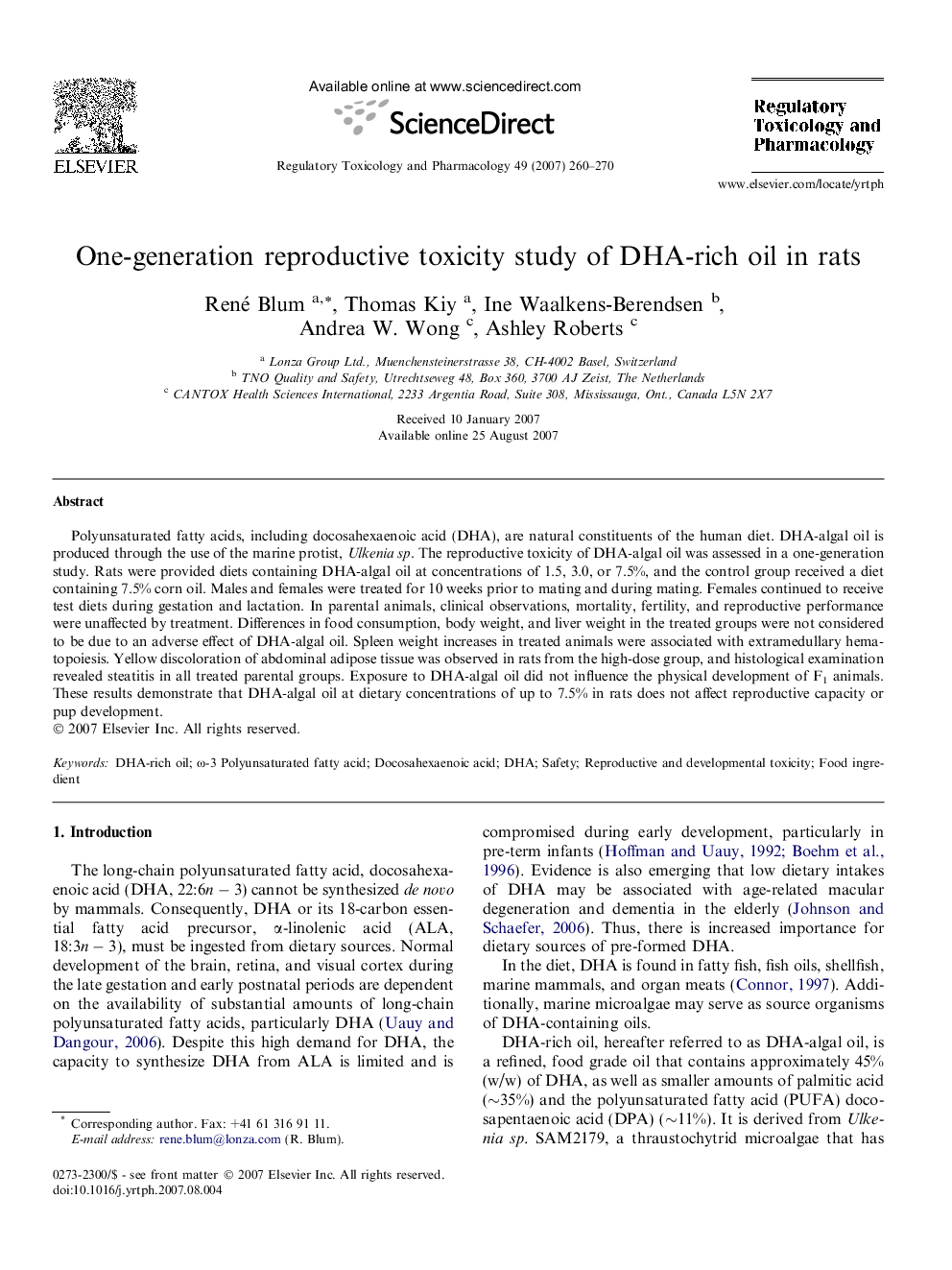| Article ID | Journal | Published Year | Pages | File Type |
|---|---|---|---|---|
| 2592756 | Regulatory Toxicology and Pharmacology | 2007 | 11 Pages |
Polyunsaturated fatty acids, including docosahexaenoic acid (DHA), are natural constituents of the human diet. DHA-algal oil is produced through the use of the marine protist, Ulkenia sp. The reproductive toxicity of DHA-algal oil was assessed in a one-generation study. Rats were provided diets containing DHA-algal oil at concentrations of 1.5, 3.0, or 7.5%, and the control group received a diet containing 7.5% corn oil. Males and females were treated for 10 weeks prior to mating and during mating. Females continued to receive test diets during gestation and lactation. In parental animals, clinical observations, mortality, fertility, and reproductive performance were unaffected by treatment. Differences in food consumption, body weight, and liver weight in the treated groups were not considered to be due to an adverse effect of DHA-algal oil. Spleen weight increases in treated animals were associated with extramedullary hematopoiesis. Yellow discoloration of abdominal adipose tissue was observed in rats from the high-dose group, and histological examination revealed steatitis in all treated parental groups. Exposure to DHA-algal oil did not influence the physical development of F1 animals. These results demonstrate that DHA-algal oil at dietary concentrations of up to 7.5% in rats does not affect reproductive capacity or pup development.
